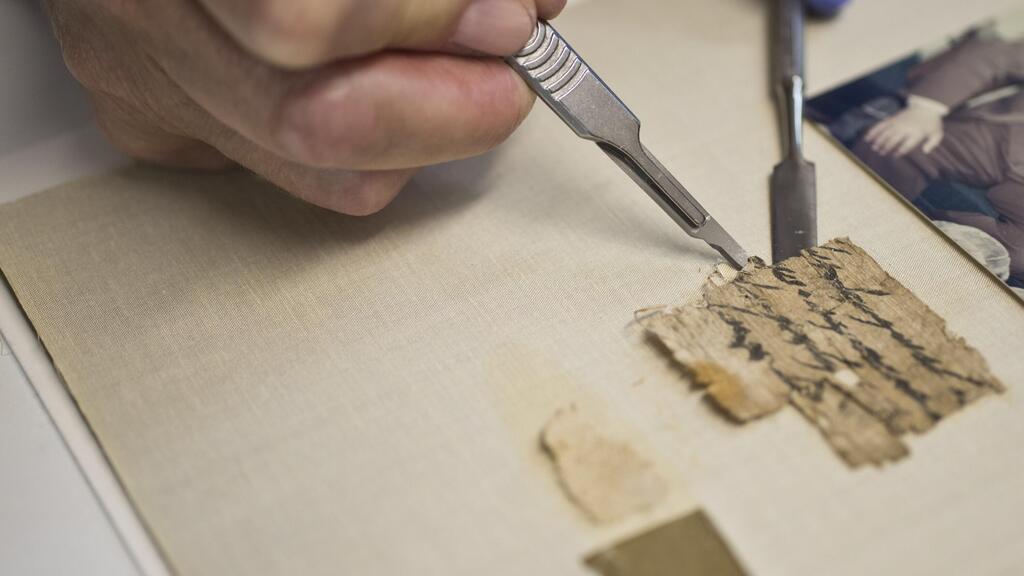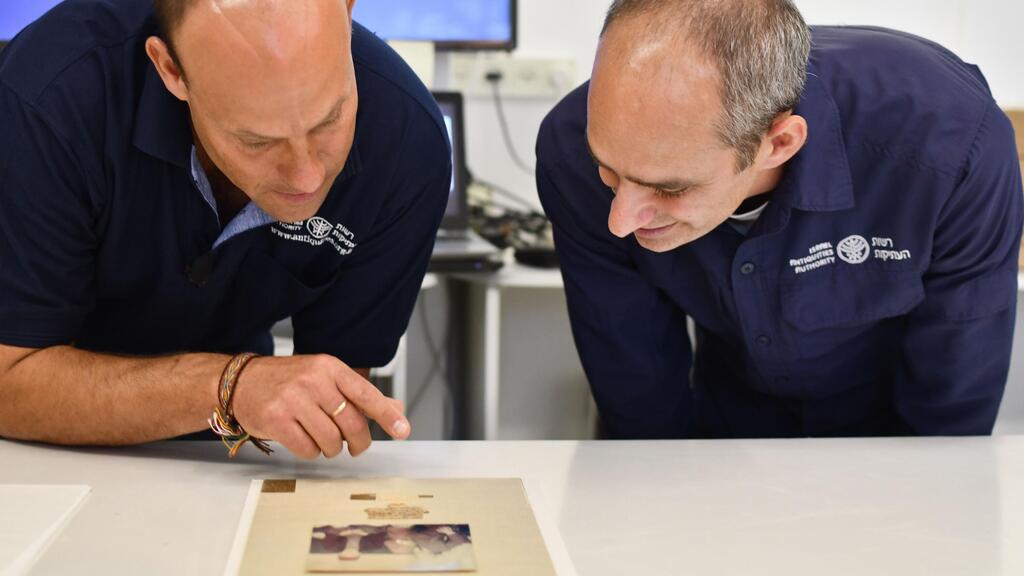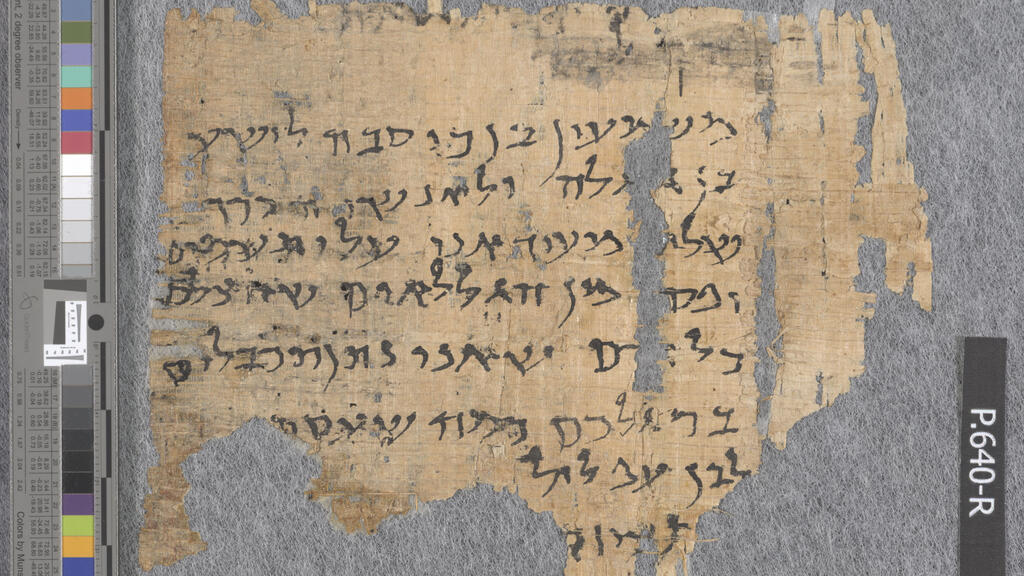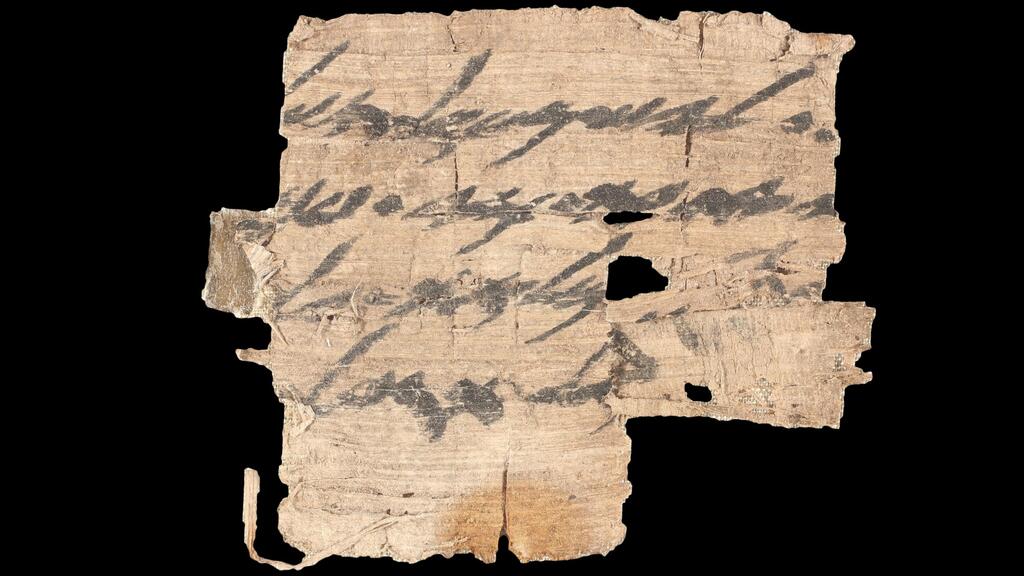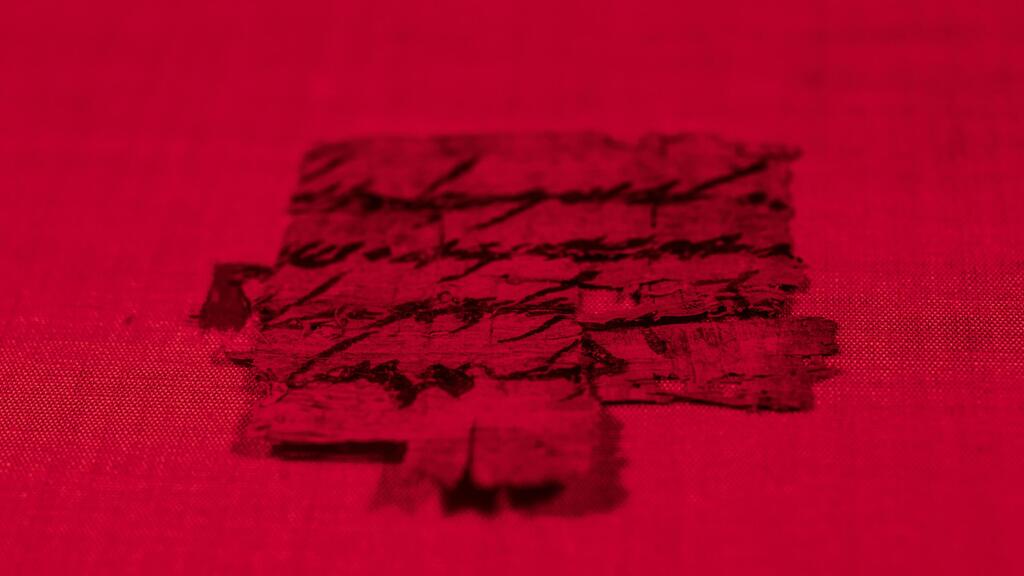Getting your Trinity Audio player ready...
A joint intelligence operation conducted by Israeli authorities repatriated an ancient Hebrew papyrus script believed to be from the First Temple period, the Israel Antiquities Authority (IAA) said on Wednesday.
The document was likely found in the Judean Desert caves.
The script was located by Prof. Shmuel Ahituv from Department of Bible Studies, Archeology and the Ancient Near East, together with the Antiquities Theft Prevention Unit of the IAA, and repatriated with the help of the Culture and Sports Ministry and the Jerusalem and Heritage Ministry.
The script is composed of four torn lines that begin with the words “To Ishmael send...,” which indicates that it's a fragment of a letter containing instructions to the recipient, according to the IAA press release.
“Based on the writing, it is proposed to date the “Ishmael Papyrus” to the seventh to sixth centuries BCE, joining only two other documents from this period in the Israel Antiquities Authority Dead Sea Scrolls collection. All three papyri come from the Judean Desert, where the dry climate enables the preservation of the papyri,” the statement said.
A resident of Montana, United States, turned out to be the owner of the papyrus, which was given to his mother during her trip to Jerusalem in 1965 by the Rockefeller Museum curator Joseph Sa’ad and antiquities dealer from Bethlehem Halil Iskander Kandu.
“The name Ishmael mentioned in the document, was a common name in the Biblical period, meaning ‘God will hear’. It first appears in the Bible as the name of the son of Abraham and Hagar, and it is subsequently the personal name of several individuals in the Bible, including Yishmael ben Netanyahu, who murdered the governor Gedaliah ben Ahikam,” Prof. Ahituv said.
“It also appears as the name of officials on paleographic finds such as bullae (clay stamp seals) used for sealing royal documents in the administration of the Kingdom of Judah, for example the bulla reading, ‘To Yishmael, son of the king’. The present document probably certified a dispatchment either to, or from, Yishmael,” he added.
Israeli authorities convinced the owner to pass the document to the Dead Sea Scrolls Unit, which conserved and documented it with the modern multispectral system used to monitor the state of the scrolls. The document was then researched by Prof. Ahituv, who will present his findings on September 15 at the IAA’s First Judean Desert Conference at the Bible Lands Museum in Jerusalem.
A sample of the papyrus was taken in order to authenticate its age, and sent to a radiometric dating analysis in the Weizmann Institute of Science. The results match the paleographic assessment of the text on the papyrus, giving credit to estimates its origins go back to the time of the First Temple.
"At the peak of the First Temple ear, literacy was common,” said Dr. Joe Uziel, head of the Dead Sea Scrolls department in the Antiquities Authority.
“But documents, made of organic material like papyrus, almost never survived. We have thousands of scroll fragments from the days of the Second Temple, but only three from the First Temple. Every document like this one sheds light on the literacy during the time of the First Temple.”
Dr. Eitan Klein, deputy head of the Antiquities Authority Theft Prevention department, said: “The return of this document to Israel is part of an ongoing effort by the department to protect and preserve Israel’s cultural heritage and tell the story of Israel and it’s people throughout the time”
He added: “The rightful place for these items in in the Israel Antiquities Authority, and we make every effort to acquire more scroll fragments located abroad and return them to Israel.”
Culture and Sports Minister, Hili Tropper said: “The Antiquities Authority, along with the Culture and Sports Ministry and the Jerusalem and Heritage Ministry, leads impressive operations to locate antiquities, and keep surprising us every time in its success. The Antiquities Authority’s Theft Prevention department works tirelessly to counter theft of precious findings, so that we can all be impressed by Israel’s national treasures, study them, and deepen our roots.”
Jerusalem Affairs and Housing and Construction Minister Ze’ev Elkin said: “This important discovery is added to a series of archeological findings of the Judean Desert in recent years, like the Dead Sea Scrolls.”
Head of the Antiquities Authority, Eli Escozido, said: “The return of the rare document to Israel is part of a process led by the Antiquities Authority, aimed to prevent trade of previously stolen scrolls.”
i24NEWS contributed to this report


